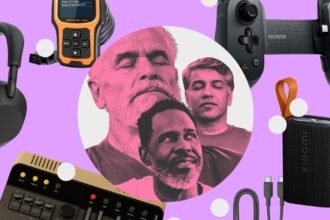The legal dispute between two Amazon influencers with strikingly similar aesthetics is approaching resolution. On Wednesday, both parties requested a judge to dismiss the copyright case, which was filed over a year ago, following my coverage of it six months prior in The Verge.
This lawsuit was both unsettling and oddly amusing, spotlighting two women whose lives have increasingly mirrored each other through social media. Their shared cream, white, and beige aesthetic raised questions about originality, as the essence of what’s being claimed as infringed is rather basic. Nevertheless, the documented similarities presented in court were undeniably peculiar.
The case is noteworthy as it seems to be the first of its kind addressing influencer content, with serious allegations that could have resulted in millions of dollars in damages for the defendant, Alyssa Sheil. Sydney Nicole Sloneker (formerly Gifford), the plaintiff and fellow influencer, accused Sheil of copyright violation for posting photos and videos that closely resembled her own while promoting identical products. Gifford also claimed trade dress infringement and misappropriation of likeness based on the uncanny similarities in their content.
Sheil’s legal team asserted in a statement that she would not owe anything to Gifford. They argued that in certain instances of alleged copying, Sheil had actually created her content first. For example, in an instance where the two women posed in black leather jackets, Gifford claimed Sheil copied her post days later; however, Sheil’s attorney, Thomas Frashier, asserted that metadata confirmed Sheil took her photo five days prior to Gifford’s post.
“I could have given in to Ms. Gifford’s demands, but this fight is bigger and sets a precedent that young minority entrepreneurs will not be intimidated,” Sheil stated through her lawyers. “Ms. Gifford tried to push me out of this industry, but she failed as the truth prevailed.” Follow-up comments from Sheil indicated her intention to continue creating Amazon-related content, expressing a readiness to move forward and noting that she had not been contacted by Amazon regarding the matter.
On TikTok, Gifford announced her decision to “walk away” from the lawsuit, citing the financial strain of a trial and the lengthy process involved. One of her lawyers stated that “settling this case enables [Gifford] to focus on what truly matters to her, which is a victory in itself. Ultimately, the public opinion will determine who was right or wrong in this situation.”
While the conflict between these two influencers may be winding down, the central issues — ownership of online personas, the artistic nature of influencer content, and the impact of social media algorithms on aesthetics — remain highly relevant. Social media thrives on repetition and trends; thus, content creators must be relentless in their efforts to stand out. The same algorithms that help make Gifford and Sheil successful also foster a landscape where individuals can appear to lead nearly identical lives, promoting the same clothing, jewelry, and home goods to viewers encountering their videos. The phenomenon of influencers resembling one another is an inherent aspect of an algorithm-driven ecosystem that prioritizes scale over unique identity. While Gifford v. Sheil may be a notable case, it certainly won’t be the last.









